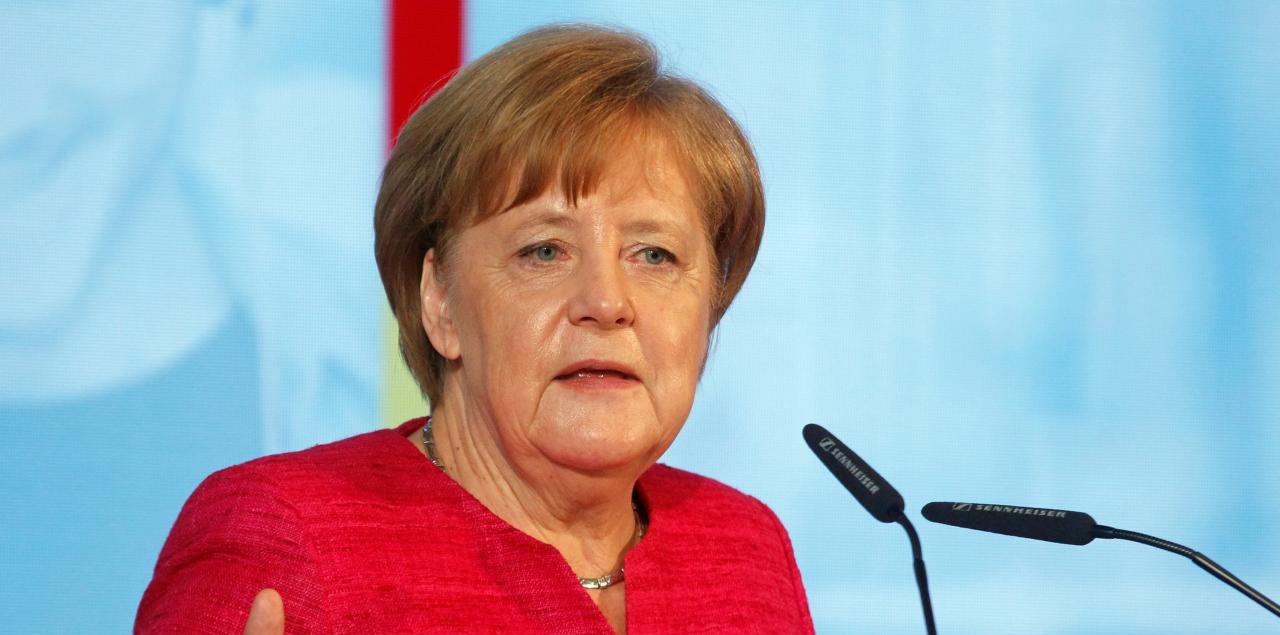Merkel’s immigration woes
June 22, 2018 | Expert Insights

German Chancellor Angela Merkel has been given a two-week deadline to settle on a new immigration policy with European leaders or face mutiny within her own government. Interior Minister Horst Seehofer is the architect of the rebellion.
Background
Germany is the second most popular migration destination in the world, after the United States. On 1 January 2005, a new immigration law came into effect. The political background to this new law was that Germany, for the first time ever, acknowledged to be an "immigration country".
In 2014 more than 276,000 people entered illegally into the European Union, an increase of 138% from 2013. In 2015 alone more than a million migrants and refugees crossed into Europe. A number of countries in the continent struggled to handle the influx of people entering their territories. Countries within the EU have had disagreements on how best to deal with the problem while also helping those seeking refuge.
In 2016, Chancellor Merkel announced they would follow a European-Turkish solution to the refugee crisis. The goal was to "noticeably and sustainably reduce the number of refugees, thus furthermore helping the people, who really need our protection". This goal was to be achieved by controlling the causes of movement, protecting the external borders of the EU, particularly the border between Greece and Turkey, and arranging an organised flow of the refugees.
Much of the migration from Africa comes first to Italy. According to figures released by the International Organization for Migration (IOM), 98,072 people came from Africa to Italy from January 2017 to August 23rd, 2017. Italy has worked with Libya to address migration. It should be noted that compared to the same period last year, Italy saw 7,000 fewer migrants reaching its shores.
Analysis
Domestically in Germany, a row over immigration and refugees has continued to brew between German Chancellor Angela Merkel and Interior Minister Horst Seehofer. Seehofer has joined the wave of anti-immigrant sentiment in Europe and has given Merkel two weeks to agree a new migration policy with European leaders. He has threatened her with an internal rebellion that could potentially bring her 13-year rule to an end.
Horst Seehofer is part of the Christian Social Union (CSU) -- the Bavarian sister party to Merkel's own Christian Democratic Union (CDU). He has continuously iterated Germany’s right to turn away refugees. His main demand is that asylum seekers be turned back at the German border if they entered the EU in another country or have already applied for asylum in Germany and had their applications turned down. Seehofer is increasingly leaning towards conservative, anti-immigrant counterparts like Chancellor Sebastian Kurz of Austria and Viktor Orban of Hungary.
Amidst this development, Merkel is meeting with leaders of other nations to try and come with a solution that could save her government. She met with French President Emmanuel Macron in hopes of finding a joint Franco-German stance on European migration policy. She has also embarked on an official visit to Middle East and main on the agenda is refugee policy. She will be meeting with Jordan's King Abdullah II and Lebanese Prime Minister Saad Hariri to discuss these issues.
"It's really a challenge, there actually is no easy way out for her," said Andrea Roemmele, a professor at Hertie School of Governance in Germany's capital, Berlin. "Every potential way weakens her power, unless she really manages - which is highly unlikely - to pull off a great deal" at the summit, she added.
Karl Kopp, director of Pro Asyl, a human rights group advocating for refugees, said the current standoff is "a theatre within the Christian Democratic family". "There is real political crisis in Brussels," he told Al Jazeera, referring to the Belgian capital which hosts several EU institutions.
Assessment
Our assessment is that Merkel’s liberal stance on immigration has resulted in her losing power domestically in Germany. If Merkel were to lose her position as the Chancellor, it would immediately cause concern within Europe as she is seen as one of the main leaders of the European Union and its staunchest defendants. Merkel’s crisis comes during a period where there is a wave of anti-immigrant sentiment spreading across Europe. Will two weeks be enough for Merkel to create a miracle?








Comments